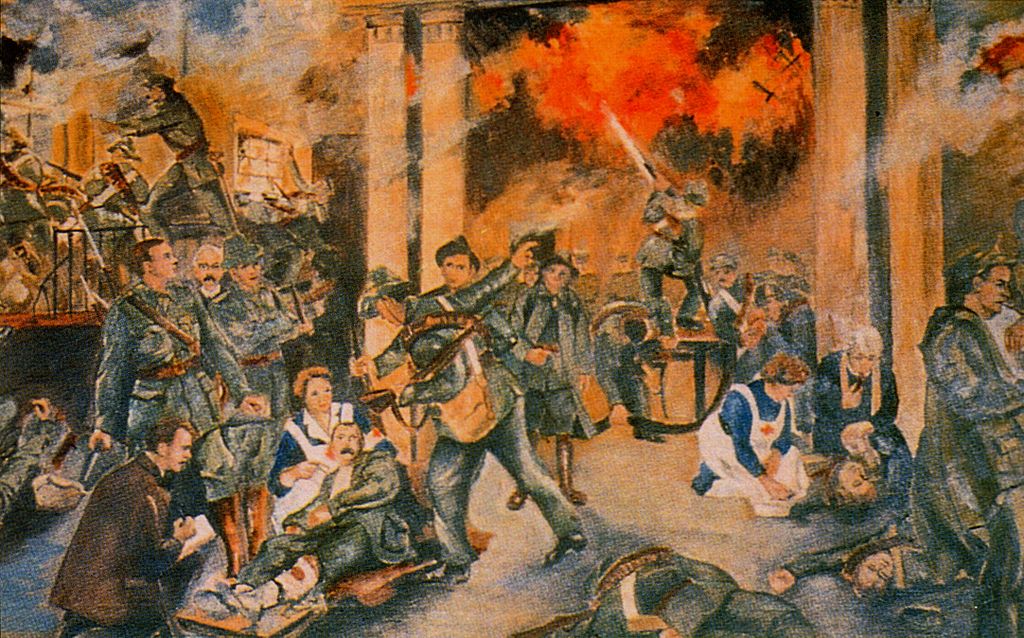The Foggy Dew

I have a fair amount of Irish ancestry (the Belfast variety). My mother, a first-generation American, taught me a few things about St. Patrick’s Day, but as Protestants, we didn’t make a big deal out of any saint’s day.
Still, St. Patrick’s Day provides a good excuse for the Irish, vaguely Irish, and not-at-all Irish to do a little celebrating in the middle of Lent.
The Foggy Dew is an Irish folk song that recounts the 1916 Easter Rising in Dublin. That failed revolt was a significant event in the history of the Republic of Ireland. I dug into this history a little in the past few weeks, and while it makes an interesting study, I’m not about to get into Irish politics here.
The lyrics of the song were written by a Catholic priest, Charles O’Neill (1887-1963). They were set to the tune of The Moorlough Shore, a traditional Irish air catalogued by ethnographers as Roud 2742. You can find the lyrics here.
Now, I want to point out something (and pose a question) that deserves much more attention than I can give it here. Take whatever view you want of the history and the politics behind it, this song stands as a powerful cultural artifact. Folk ballads, broadly defined, are one of the most potent and effective forms of storytelling. They preserve, instruct, and inspire.
I came of age in the 1960s when many of us were wrapped up in the folk music of the time—not listening to it with earbuds, but singing and playing the tunes on our guitars. Some of it was authentic folk music, but much was newly composed. Some songs, but not all, were politically charged with themes based around civil rights, labor issues, and anti-war sentiments. Some of the music had sophisticated roots, and some was naive foolishness. We didn’t all share the same politics, but we did mostly share the same music.
Decades later, we could make out a long list of what was wrong with the 60s. But, like The Foggy Dew, the Civil War songs, or much older medieval ballads like The Song of Roland, any music that characterizes a given era has been created around human struggles and aspirations.
At least until now. Our own times are filled with significant struggles, yet there is something troubling about our inability to express our aspirations through newly created art. It strikes me as a sure sign of a nihilistic age and a society without hope. As Anthony Esolen recently remarked, “The people of a dying culture produce almost no art worthy of the name.”



